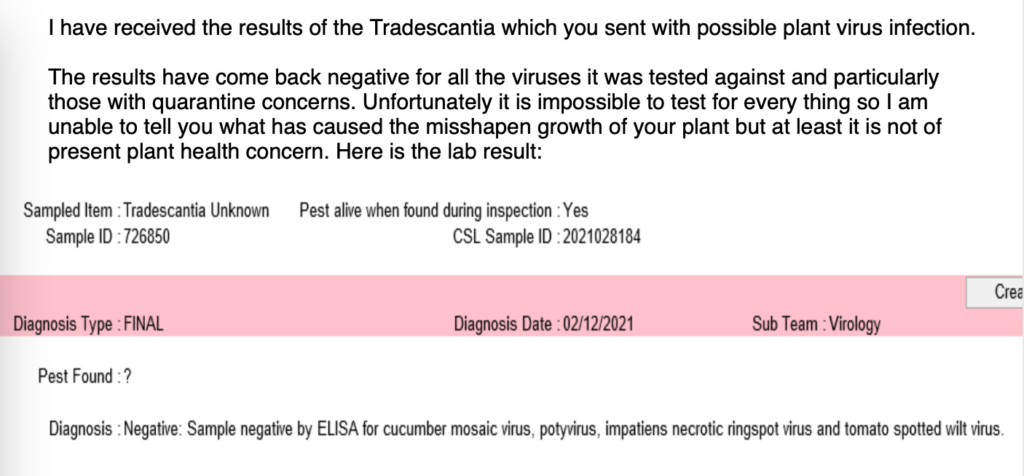T. zebrina ‘Tikal’ is an unusual cultivar which circulates among collectors around the world. It was named after the place it was collected from the wild, the Tikal area of Guatemala. The most obvious distinguishing feature of the cultivar is that in the right conditions, it develops blood-red pinstripes over the surface of the leaves.
But it has other distinguishing features which are more puzzling. The cultivar is prone to brown spots, leaf curling, and other signs of vague ill health. Some people have suggested that these are symptoms of a viral infection. Some have even gone as far as to claim that the plant should be quarantined or banned from sale for fear that it’s contagious. Others have grown the plant for years and report no evidence of the symptoms spreading to nearby plants.
I submitted a sample of my ‘Tikal’ plant to the Animal and Plant Health Agency (APHA), the UK government agency which handles plant health concerns. There’s no easy test to determine whether a plant has any virus in general. But APHA tested the plant for all the known viruses of concern, and they were all negative.

This means that the plant doesn’t have any virus which is a risk to plant health in the UK. It’s possible that it has another virus which wasn’t tested for, but APHA don’t consider it to be a threat. I hope this result provides some reassurance to anyone worried about this plant. I’ll also be interested to hear if anyone has the plant tested for any other viruses, so please get in touch if you have any results!
Update January 2025: There still hasn’t been any more scientific investigation into this plant, and I haven’t heard from anyone who’s had it tested for other viruses. But I’ve been growing it for several years, and in that time I’ve spoken to countless other people who have grown it for countless more years combined. And in all of that, I’ve never heard of a single confirmed case of ‘Tikal’ transmitting anything to any other plant. I’m confident that it either has no virus, or it has a virus which is almost impossible to transmit. I don’t believe it poses any significant risk at all.
